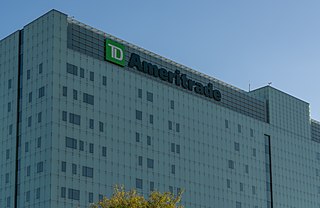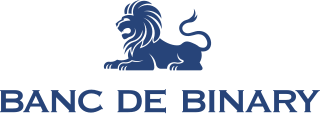Related Research Articles

A security is a tradable financial asset. The term commonly refers to any form of financial instrument, but its legal definition varies by jurisdiction. In some countries and languages people commonly use the term "security" to refer to any form of financial instrument, even though the underlying legal and regulatory regime may not have such a broad definition. In some jurisdictions the term specifically excludes financial instruments other than equity and fixed income instruments. In some jurisdictions it includes some instruments that are close to equities and fixed income, e.g., equity warrants.

In finance, being short in an asset means investing in such a way that the investor will profit if the market value of the asset falls. This is the opposite of the more common long position, where the investor will profit if the market value of the asset rises. An investor that sells an asset short is, as to that asset, a short seller.

Day trading is a form of speculation in securities in which a trader buys and sells a financial instrument within the same trading day, so that all positions are closed before the market closes for the trading day to avoid unmanageable risks and negative price gaps between one day's close and the next day's price at the open. Traders who trade in this capacity are generally classified as speculators. Day trading contrasts with the long-term trades underlying buy-and-hold and value investing strategies. Day trading may require fast trade execution, sometimes as fast as milli-seconds in scalping, therefore direct-access day trading software is often needed.
The 2003 mutual fund scandal was the result of the discovery of illegal late trading and market timing practices on the part of certain hedge fund and mutual fund companies.

Financial services are economic services tied to finance provided by financial institutions. Financial services encompass a broad range of service sector activities, especially as concerns financial management and consumer finance.
Bank of America Home Loans is the mortgage unit of Bank of America. It previously existed as an independent company called Countrywide Financial from 1969 to 2008. In 2008, Bank of America purchased the failing Countrywide Financial for $4.1 billion. In 2006, Countrywide financed 20% of all mortgages in the United States, at a value of about 3.5% of the United States GDP, a proportion greater than any other single mortgage lender.

The Securities Investor Protection Corporation is a federally mandated, non-profit, member-funded, United States government corporation created under the Securities Investor Protection Act (SIPA) of 1970 that mandates membership of most US-registered broker-dealers. Although created by federal legislation and overseen by the Securities and Exchange Commission, the SIPC is neither a government agency nor a regulator of broker-dealers. The purpose of the SIPC is to expedite the recovery and return of missing customer cash and assets during the liquidation of a failed investment firm.
Front running, also known as tailgating, is the practice of entering into an equity (stock) trade, option, futures contract, derivative, or security-based swap to capitalize on advance, nonpublic knowledge of a large ("block") pending transaction that will influence the price of the underlying security. In essence, it means the practice of engaging in a personal or proprietary securities transaction in advance of a transaction in the same security for a client's account. Front running is considered a form of market manipulation in many markets. Cases typically involve individual brokers or brokerage firms trading stock in and out of undisclosed, unmonitored accounts of relatives or confederates. Institutional and individual investors may also commit a front running violation when they are privy to inside information. A front running firm either buys for its own account before filling customer buy orders that drive up the price, or sells for its own account before filling customer sell orders that drive down the price. Front running is prohibited since the front-runner profits come from nonpublic information, at the expense of its own customers, the block trade, or the public market.
In finance, margin is the collateral that a holder of a financial instrument has to deposit with a counterparty to cover some or all of the credit risk the holder poses for the counterparty. This risk can arise if the holder has done any of the following:
In finance, securities lending or stock lending refers to the lending of securities by one party to another.

An auction rate security (ARS) typically refers to a debt instrument with a long-term nominal maturity for which the interest rate is regularly reset through a Dutch auction. Since February 2008, most such auctions have failed, and the auction market has been largely frozen. In late 2008, investment banks that had marketed and distributed auction rate securities agreed to repurchase most of them at par.

TD Ameritrade was a stockbroker that offered an electronic trading platform for the trade of financial assets including common stocks, preferred stocks, futures contracts, exchange-traded funds, forex, options, mutual funds, fixed income investments, margin lending, and cash management services. The company received revenue from interest income on margin balances, commissions for order execution, and payment for order flow.
In the United States, a pattern day trader is a Financial Industry Regulatory Authority (FINRA) designation for a stock trader who executes four or more day trades in five business days in a margin account, provided the number of day trades are more than six percent of the customer's total trading activity for that same five-day period.
Commonwealth Securities Limited, or CommSec, is Australia's largest online stockbroking firm. It is a subsidiary of the Commonwealth Bank.

Wells Fargo & Company is an American multinational financial services company with a significant global presence. The company operates in 35 countries and serves over 70 million customers worldwide. It is a systemically important financial institution according to the Financial Stability Board, and is considered one of the "Big Four Banks" in the United States, alongside JPMorgan Chase, Bank of America, and Citigroup.
Merrill, previously branded Merrill Lynch, is an American investment management and wealth management division of Bank of America. Along with BofA Securities, the investment banking arm, both firms engage in prime brokerage and broker-dealer activities. The firm is headquartered in New York City, and once occupied the entire 34 stories of 250 Vesey Street, part of the Brookfield Place complex in Manhattan. Merrill employs over 14,000 financial advisors and manages $2.8 trillion in client assets. The company also operates Merrill Edge, a division for investment and related services, including call center counsultancy.

Banc De Binary was an Israeli financial firm with a history of regulatory issues on three continents. On January 9, 2017, the company announced that it would be closing due to negative press coverage and its tarnished reputation. The firm also surrendered its brokerage license with the Cyprus Securities and Exchange Commission (CySEC) removing its ability to legally trade in the European Union. Its 2014 revenues were reported as $100 million.

Robinhood Markets, Inc. is an American financial services company headquartered in Menlo Park, California. The company provides an electronic trading platform accessible via mobile app that facilitates commission-free trades of stocks, exchange-traded funds and cryptocurrency, as well as cryptocurrency wallets, credit cards and other banking services. The company's revenue comes primarily from payment for order flow, net interest income, and subscription fees. The company has 23.9 million funded customers, 13.7 million monthly active users, and $130 billion in assets under custody.

Securities market participants in the United States include corporations and governments issuing securities, persons and corporations buying and selling a security, the broker-dealers and exchanges which facilitate such trading, banks which safe keep assets, and regulators who monitor the markets' activities. Investors buy and sell through broker-dealers and have their assets retained by either their executing broker-dealer, a custodian bank or a prime broker. These transactions take place in the environment of equity and equity options exchanges, regulated by the U.S. Securities and Exchange Commission (SEC), or derivative exchanges, regulated by the Commodity Futures Trading Commission (CFTC). For transactions involving stocks and bonds, transfer agents assure that the ownership in each transaction is properly assigned to and held on behalf of each investor.
References
- 1 2 "Freeriding". Investor.gov. Retrieved 2024-07-18.
- ↑ Best, Michael; Fadaei, Friedrich LLP-Iqan E.; Voter, Betsy T. (2022-03-02). "Gamestop is still relevant: SEC proposes T+1 settlement cycle". Lexology. Retrieved 2022-03-31.
- ↑ "Ask Mike: What is a 'Free Ride'?". Archived from the original on 2007-07-11. Retrieved 2003-12-15.
- 1 2 Payne, Joanna. "Stock Settlement: Why You Need to Understand the T+2 Timeline". Schwab Brokerage. Retrieved 2022-03-31.
- ↑ "Stock trading rules in cash accounts: Understanding good faith and freeride violations". E*TRADE. Retrieved 2022-03-31.